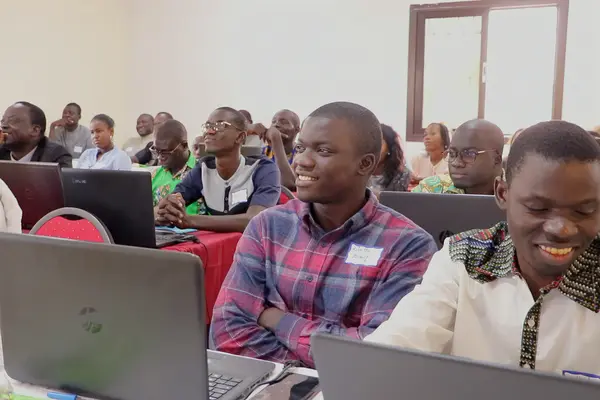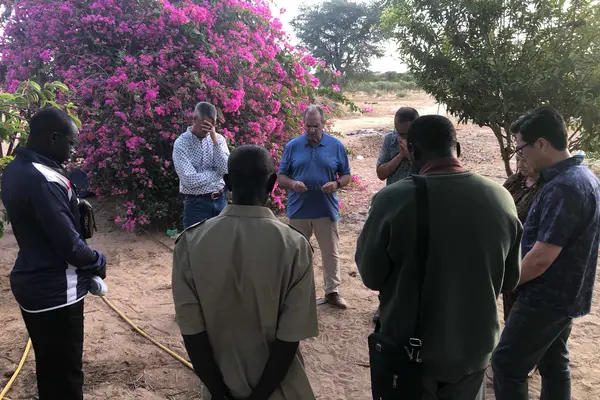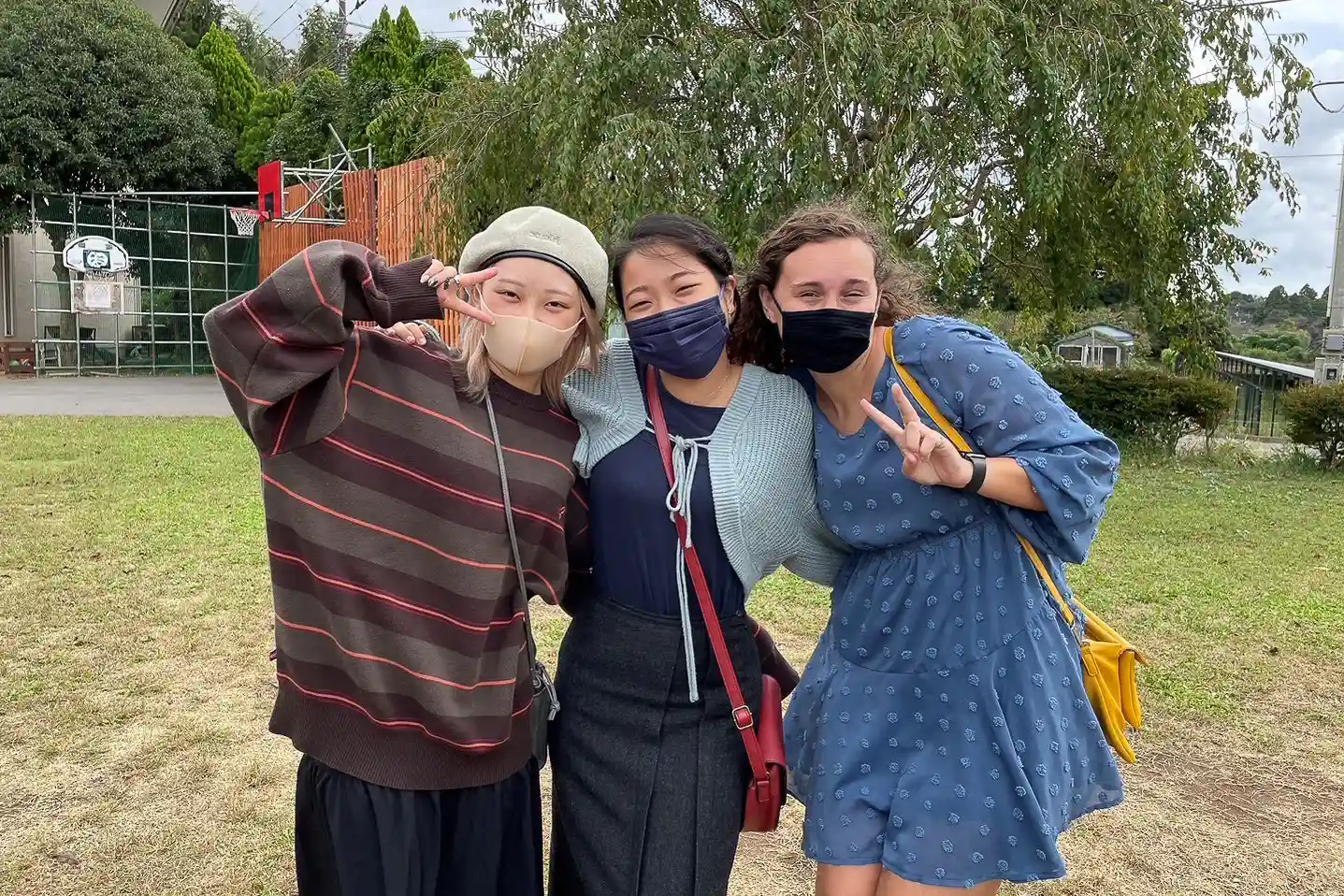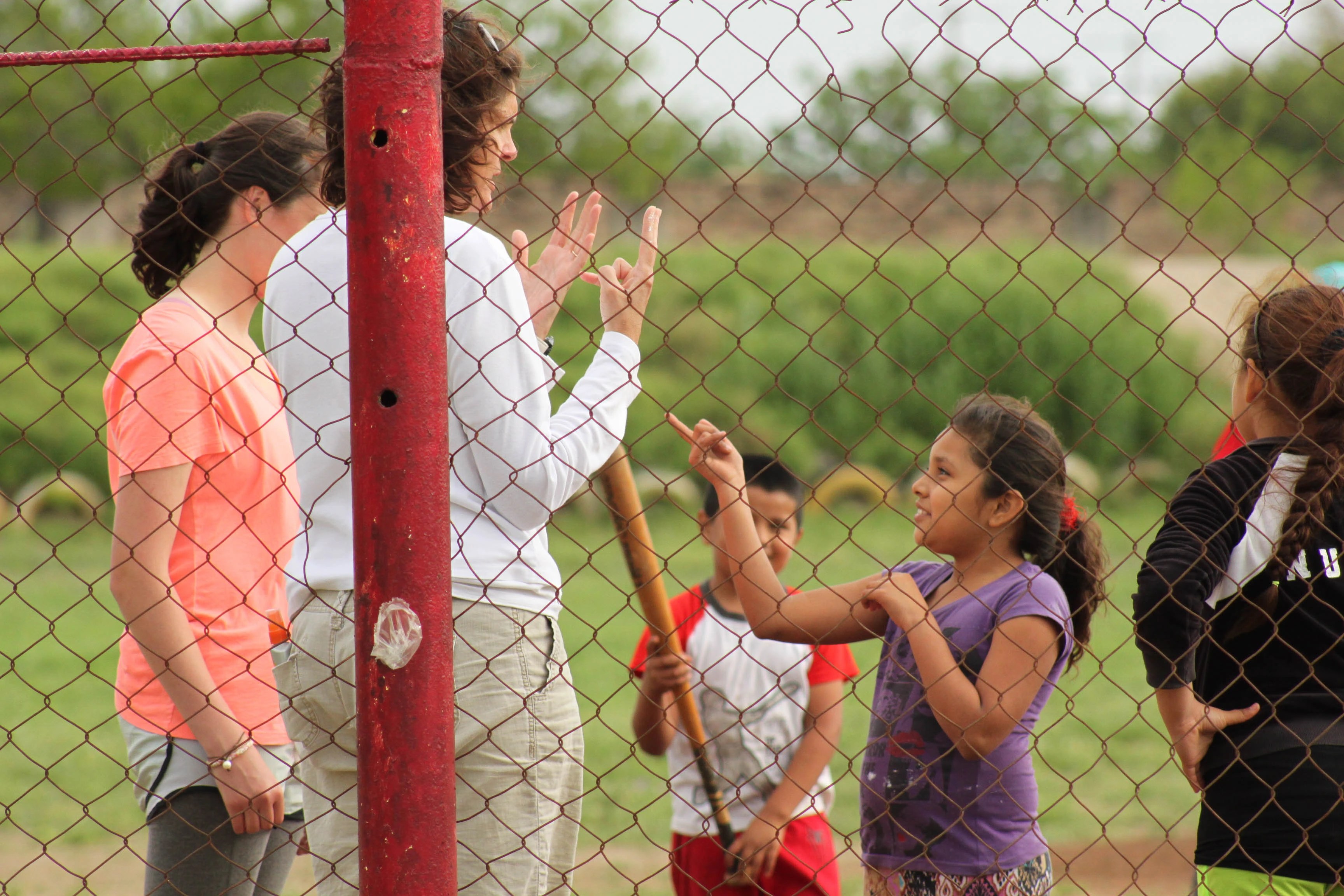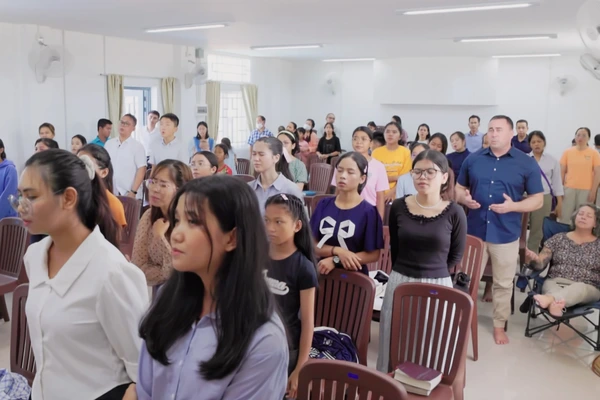Agricultural Development Program Is Solving Food Insecurity and Empowering Churches in Africa

In September 2021, a group of MTW missionaries, African church partners, and volunteers from PCA churches in America met in Zimbabwe for a conservation agricultural training program at the Foundations in Farming training center.
The training was a pilot program for a new agricultural development project MTW planned to launch in Africa in partnership with Equipping Leaders International that in just one year could help small farmers produce four times their normal crop yields.
Conservation agriculture was developed in the 1940’s in the U.S. in response to the dust bowl disaster. It has since been adapted to the Global South, where 60-80% of churches are comprised of small farmers.
The African church leaders attending were to learn the conservation agriculture techniques and go teach it to their churches and communities. Mission to the World hoped that in five years they would have hosted a dozen trainings, equipped a handful of trainers in six to seven African countries, and reached 300 families.
By the end of 2023, Mission to the World’s agricultural team had equipped 395 trainers in 36 countries who reached over 7,000 families across Africa—more than 2300% of anticipated impact in less than half the time expected. The impact of the agricultural development project was so immediate that MTW recently established a new non-profit called Equipping Farmers International to scale the program effectively.
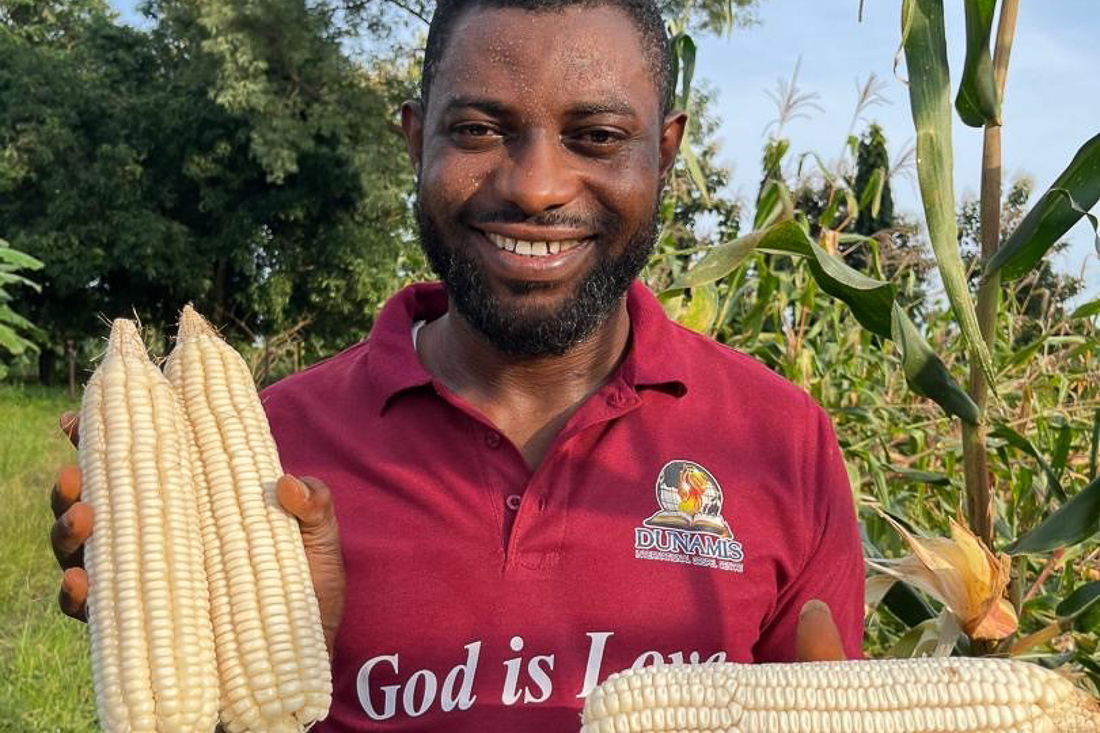
Instant Results Lead to High Demand
Two months after the first training in Zimbabwe, MTW’s Regional Director for East Africa Frank Sindler and Agricultural Director Michael Cooley, hosted a trainers training in Uganda for a national partner called Trinity Bible Institute. During the trip, word spread quickly about the training and ministry workers in the area were constantly asking Frank and Michael how they could get involved in the program.
“At the end of that trip we were thinking, ‘I hope this doesn’t happen all the time because there’s no way we can keep up with this,’” says Frank.
But God has a sense of humor. Government entities, non-profit, and ministry organizations across Africa began reaching out to Frank about the agricultural program, often with multiple inquiries a day. It seemed like it was all anyone could talk about.
“I would end up in conversations with people on calls that were about theological education and somebody would say, ‘Oh, I heard you’re doing something with agriculture. Can you tell me a little bit about it?’ and then the rest of the call was all about agriculture and everybody drops the original meeting agenda,” says Frank.
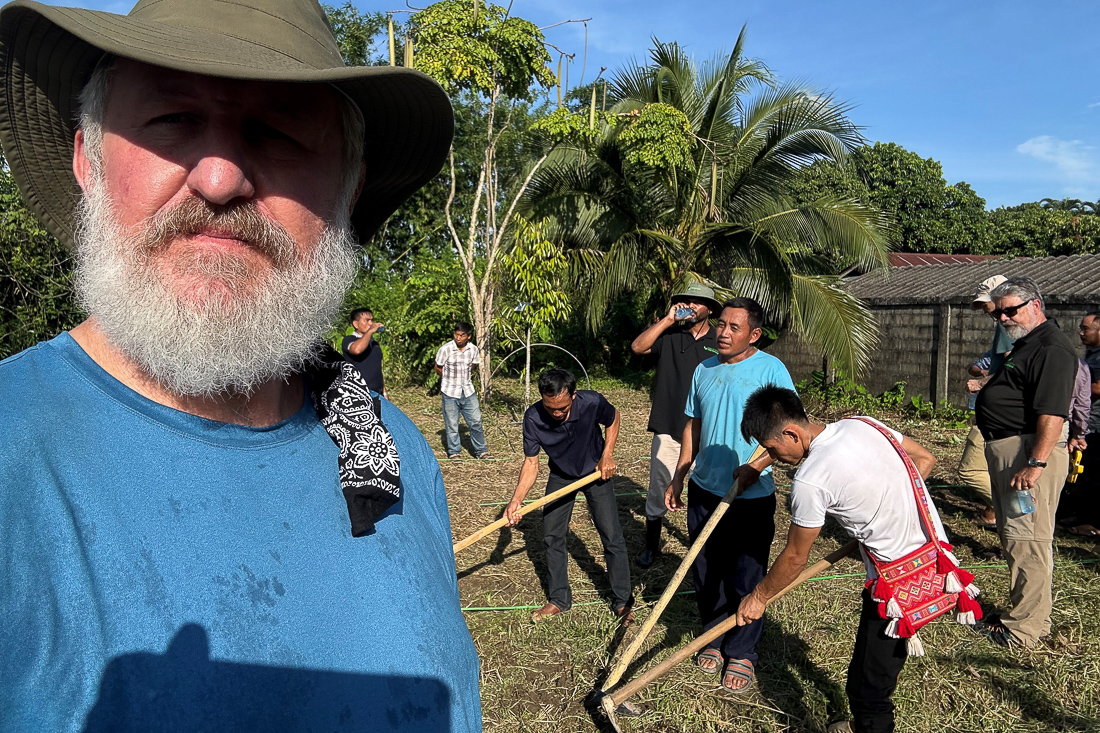
The immediate impact the farming techniques produced for small farmers created an instant demand for the program. Africa has an ideal climate and soil for farming. However, its conventional farming practices came out of the West and require significant capital, expensive seeds and fertilizers, big equipment, and efficient supply chains. In Africa, this is a recipe for being impoverished. Using conventional farming methods, a small farmer can work two to three acres of land and still not produce enough food to feed himself or his family.
A farmer, using the conservation agriculture approach the EFI program offers, can take one-sixteenth of an acre of land and a hoe and grow enough staple food (typically corn) to feed their family three meals a day for a full year.
“Within the first season of a farmer implementing the program, they can see a fourfold increase in their production, and they are able to deal with all the issues that they have with the rainfall problems that are going on in the world now,” says Frank. “So farmers who [currently] can’t feed their families on two and a half acres of land can almost immediately feed their families year in and year out, 365 days a year.”
Agricultural Training and Discipleship Go Hand in Hand
With seemingly the entire African continent needing the agricultural program right away, Frank and the team zeroed in on their strategy. They spent the larger part of 2022 further developing the project with two foundational commitments—they kept the training program mobile and decided to work exclusively through local churches.
According to Frank, every organization that works in agricultural development, including the United Nations, uses the conservation agriculture methods the program teaches. But farmers have to travel to a training center and spend six months learning the new methods, which isn’t practical for a subsistence farmer. Many small farmers don’t have the means or time to travel to these centers and most rural churches don’t have access to these types of programs.
“We wanted a simple training program that could get people trained in a short timeframe so they could train others in a short timeframe,” says Frank. “We wanted something that was deliverable directly to churches by mobile teams.” EFI worked with Dordt University, a Reformed university with a strong agriculture program, in Sioux City, Iowa, to create a comprehensive training curriculum called the International Certification in Conservation Agriculture.
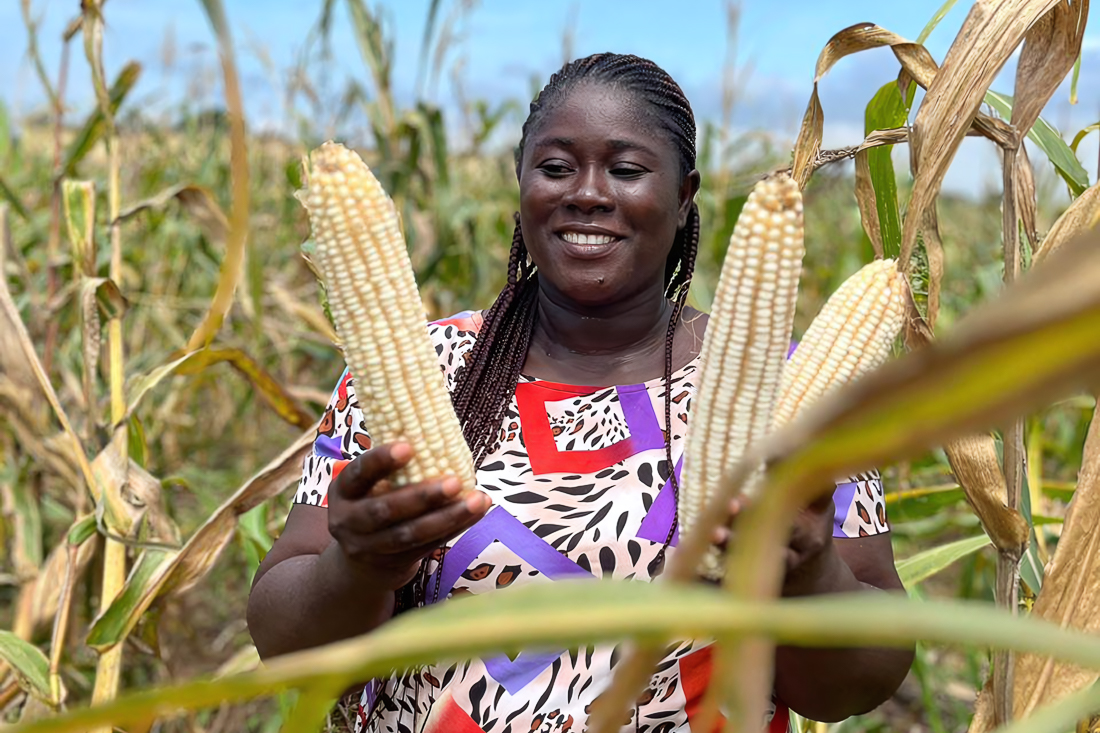
While effectively addressing food insecurity is the team’s main goal, the new and improved ICCA program combines agricultural training with a discipleship curriculum that encourages a biblically holistic view of farming and agriculture. Frank says that no one wants to be known as a farmer in Africa. It is seen as a “loser” job—ironic since small farmers comprise 60 to 80% of the African population. The team addresses this negative attitude toward farming immediately when they start working with a new church. They begin with a vision-casting meeting with the church leaders during which they examine the ways God speaks about farming in Scripture.
“We talk about when God created the earth, the first thing He does after Creation is that He Himself plants a garden and then He takes man and puts man in the garden and gives man the job to steward that garden. So God is the first farmer and man’s first job is to work the farm,” says Frank.
They then dive into God’s covenant with Israel which not only includes the promises of redemption but also promises of rainfall, financial sufficiency, and agricultural fruitfulness if they are faithful to walk in the ways of the Lord.
“We try to get them to reflect on these promises and ask questions such as, ‘What have we missed about discipling people and discipling the nations that has relegated us into this poverty and this kind of never-ending cycle of dependency? Why can’t our people feed themselves?’ Because these promises are there for God’s people and the Church is now God’s people,” says Frank.
The discipleship curriculum goes hand in hand with the agricultural techniques to empower small farmers as active kingdom agents in their churches and communities. The farm of Kenyan pastor Elisha Ochieng Atieno typically only produced one or two sacks of corn per season. After applying the EFI approach, his farm yielded more than nine sacks of corn in just three months after he attended an EFI training. He kept two to feed his family, sold seven for much-needed income, and gave away the rest to the needy in his church.
Another pastor in the same presbytery in Kenya said, “What a difference the Lord of the Harvest has made and is making in and through this ministry in the lives of our brothers and sisters in Kenya. That difference has been clearly nothing short of dramatic … notably in the near 180-degree swing from needing food assistance due to the dire food shortage to now experiencing unprecedented agricultural yields and in their earnest desire to grow in the Lord, to share the good news with others, and to plant churches.”
Astronomical Potential Impact for the African Church
Africa is poised to become the world’s epicenter of Christianity within the next 50 years. Yet many churches still heavily depend on the West for financial aid and resources. ‘The ministry of the Church in Africa often gets short-circuited because they can’t do it with local funding,’ Frank says.
“When I met with pastors in the past and we talked about developing ministry, they had great vision, they had great plans, and they were seeing the Holy Spirit move in great ways,” says Frank. “But once they got the plan down, the only thing they can see is that they need to find a connection to the West who will provide funding for it. And then they feel like they have to structure it in such a way that it is going to fit the donor’s expectations.”
Yet according to MTW missionaries serving in Africa, the African Church’s lack of funding is not a resource problem—it is a discipleship problem. Frank and the team are trying to help pastors see that God has not only provided for the Western Church but also for the Church worldwide.
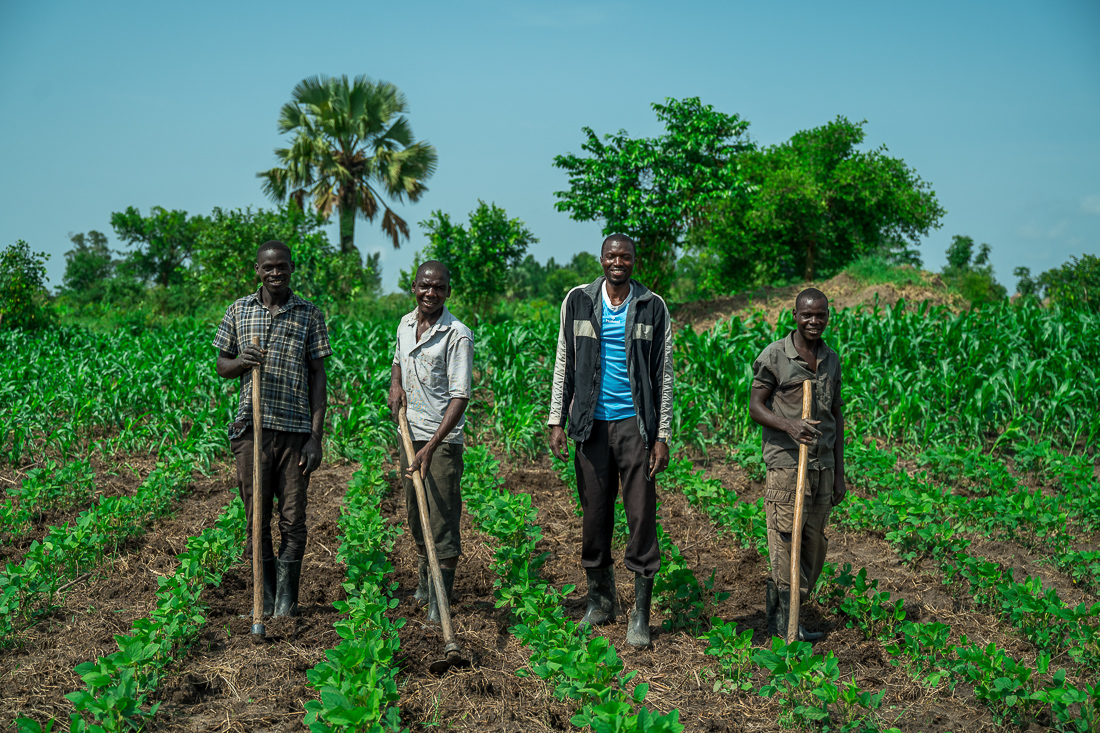
For example, there are over 200 million small Christian farmers in Africa. According to Frank, if each of those farmers grew a crop intensification plot on one-sixteenth of an acre and gave their yields to the local church, it would generate about 160 billion dollars a year.
“Africa receives about 25 billion dollars a year in foreign development funding. … Those are the programs that the governments run that are flushed with corruption, and the money most often makes very little difference,” says Frank. “But the Christian farmers in Africa could give six times that amount to the Church in Africa … There are more resources there than we could ever make use of. Helping people see that vision and then helping them have the tools to disciple people … will actually open those doors for what’s become the center of the Church worldwide.”
The agricultural team believes that if pastors in Africa validate vocations in agriculture and teach farmers in their churches how to use their jobs to glorify God and advance His kingdom, the Church in Africa could break the cycle of dependency on the West and become the global influence it has the potential to be. They hope that in 10 or 20 years the Church in Africa is a mecca for resources for the global Church.
The Team Dreams Even Bigger
At the beginning of 2023, Frank and the team realized the management of the agricultural program had grown beyond MTW’s capacity. They were getting requests from Christian nonprofits and organizations such as CRU, Compassion International, SIM, SIL, African Inland Mission, and Thirdmill to work with their church partners throughout the world. In March of 2023, Frank met with MTW’s International Director for Africa Victor Nakah, who suggested the team set up another organization to operate the program. This would also allow MTW to retain its focus on church planting and discipleship.
Shortly after Frank and Victor’s meeting, Rev. Chuck McArthur, PCA teaching elder and the director of Equipping Leaders International—one of Mission to the World’s international partners whose churches had already benefited from the agricultural training—made available a registered nonprofit organization that had been turned over to ELI that year. This saved the agricultural development team from having to go through the bureaucratic headache of setting up their own nonprofit. All MTW had to do was reconstitute the bylaws and Equipping Farmers International was born.
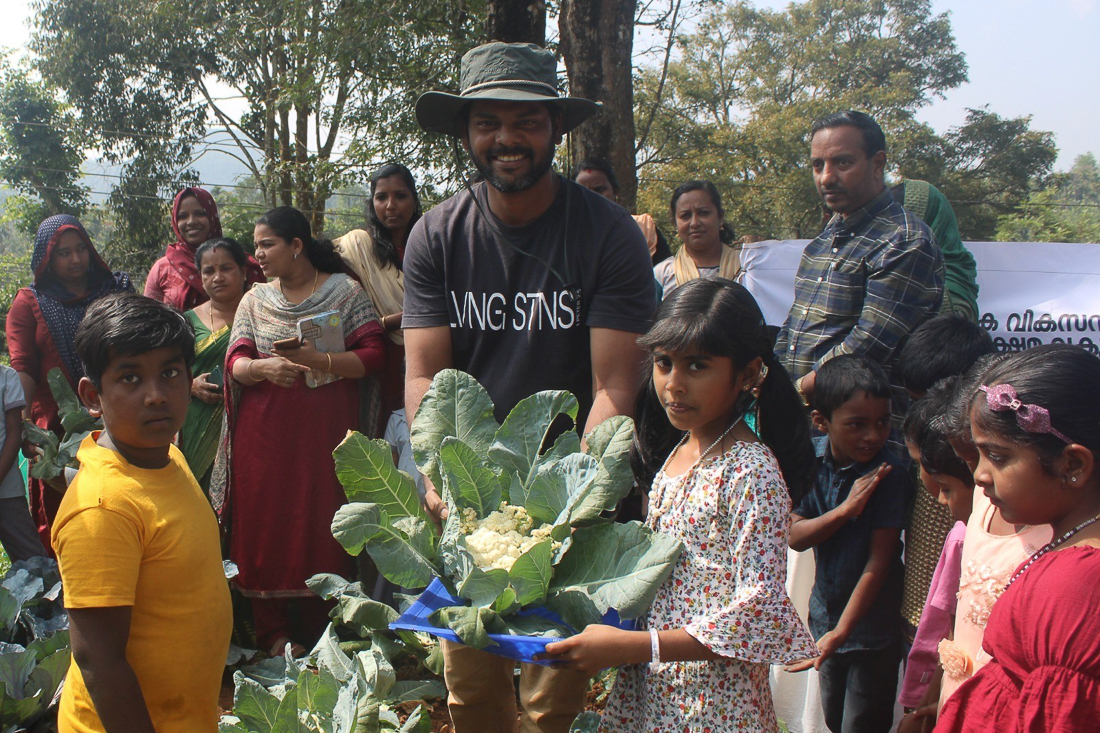
Since its establishment in June 2023, EFI has been able to hire 25 staff members including seven global regional directors, create an 11-member board of directors, and implement its own database system to keep track of its trainers, events, and contacts.
Now they are dreaming even bigger, extending their reach beyond Africa to countries throughout the Global South. In 2024, they had requests to work in 58 countries in Africa, Asia, and Latin America. They have started in many new countries this year and recently sent a training team to work with MTW church plants in Mexico.
“We’re slowly building up our capacity to meet the demand. But it seems like every time we get ahead of the curve a little bit, the curve just gets bigger and bigger,” says Frank. Fortunately, God is providing organizations—whether it is other nonprofits or PCA churches—eager to come alongside and partner with EFI in their work.
The team’s journey from their starting point at the pilot training in Zimbabwe in 2021 to setting up a nonprofit that works in 54 countries has felt like sprinting a marathon. But along the way, God has used MTW’s Africa missionaries and their partners to dramatically change the lives of thousands of families and empower churches across Africa. The agricultural program has the potential to change the tides of the Church in Africa, the Global South, and the world.
You can learn more about Equipping Farmers International at www.efi-intl.org.




